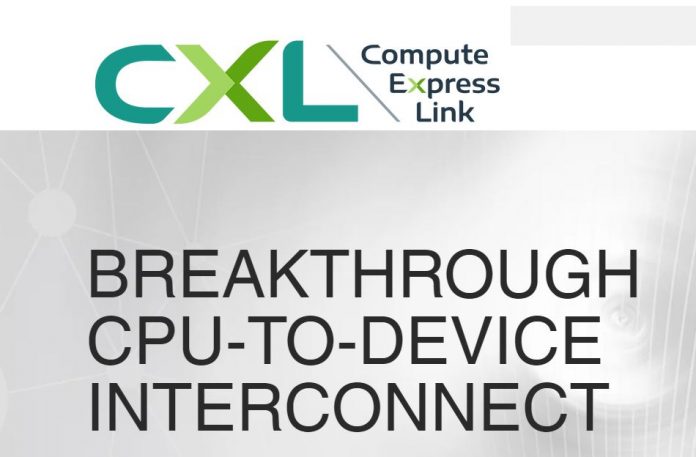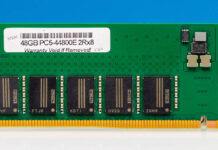Fresh off of losing Mellanox to NVIDIA, Intel launched a new interconnect called Compute Express Link Interconnect, or CXL. This is a PCIe Gen5 based standard that is trying to tackle the problem of cache coherency and interconnect in next-generation products. While UPI worked for Intel when the majority of major compute devices were CPUs, as the company, and industry have branched out to adopt GPUs, FPGAs, and other accelerators, the need for a more expansive and faster interconnect has become a greater industry topic. Intel CXL at its announcement almost seems as though Intel is embracing Gen-Z while not adopting Gen-Z outright.
Compute Express Link Interconnect Specs
Here is a short blurb on the specs:
The CXL Specification 1.0 enables a high-speed, efficient interconnect between the CPU and platform enhancements and workload accelerators, such as GPUs, FPGAs and other purpose-built accelerator solutions. The technology is built upon the well-established PCI Express® (PCIe®) infrastructure, leveraging the PCIe 5.0 physical and electrical interface to provide advanced protocol in three key areas:
- I/O Protocol
- Memory Protocol, initially allowing a host to share memory with an accelerator
- Coherency Interface
(Source: CXL About Page)
The full specs are available to members, so we do not have a ton to go on here.
Compute Express Link Interconnect CLX Founding Partner Group
From the Compute Express Link website and press announcement, here is the CXL founding partner list.
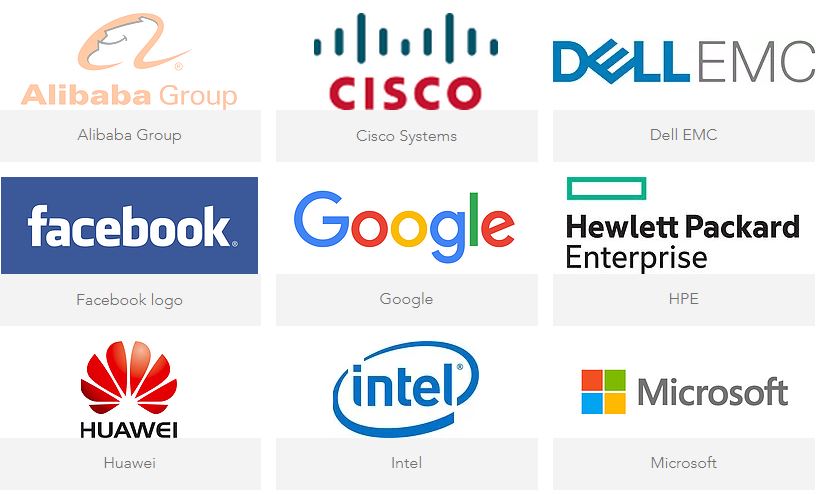
This is frankly not good. There are a lot of big logos on this list, but there are too many missing for an initial release.
Where are the other accelerator companies? Let us quickly take a look at Gen-Z Consortium and its member list as of today’s announcement:
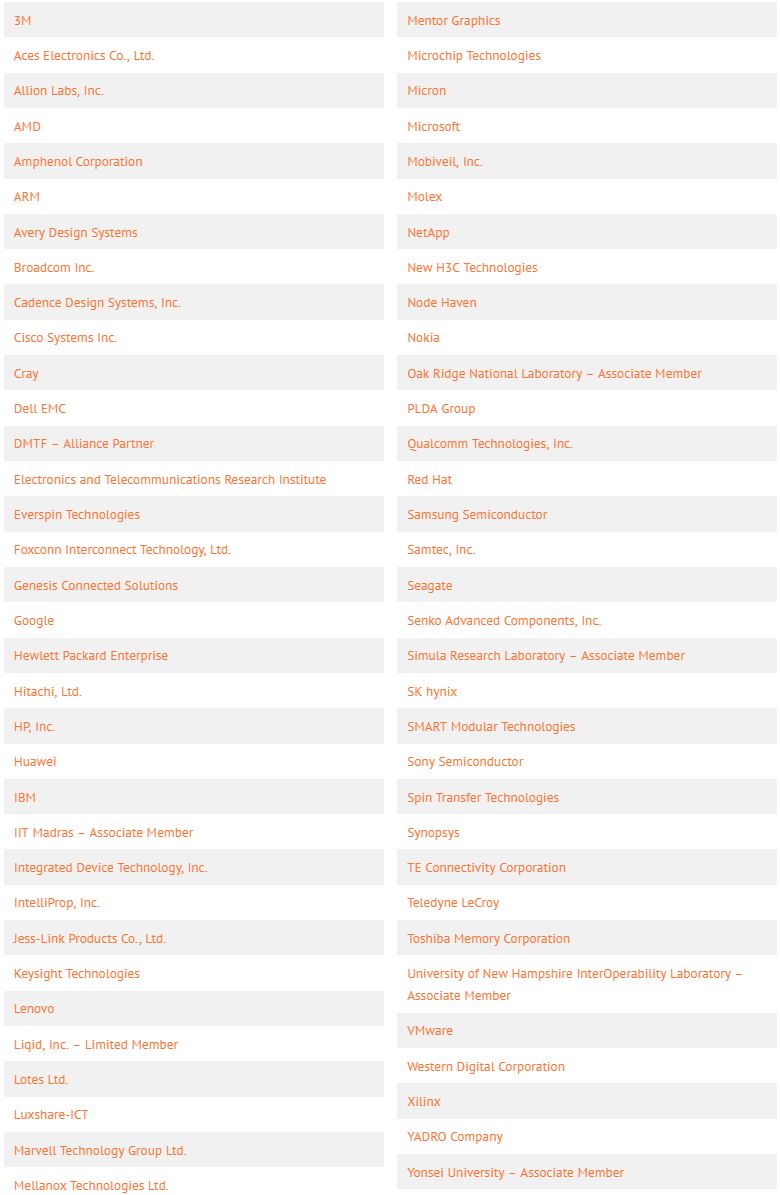
We recently covered Gen-Z in our Interview with Dell’s Robert Hormuth on 2019 Predictions and in our In-depth Dell EMC PowerEdge MX Review.
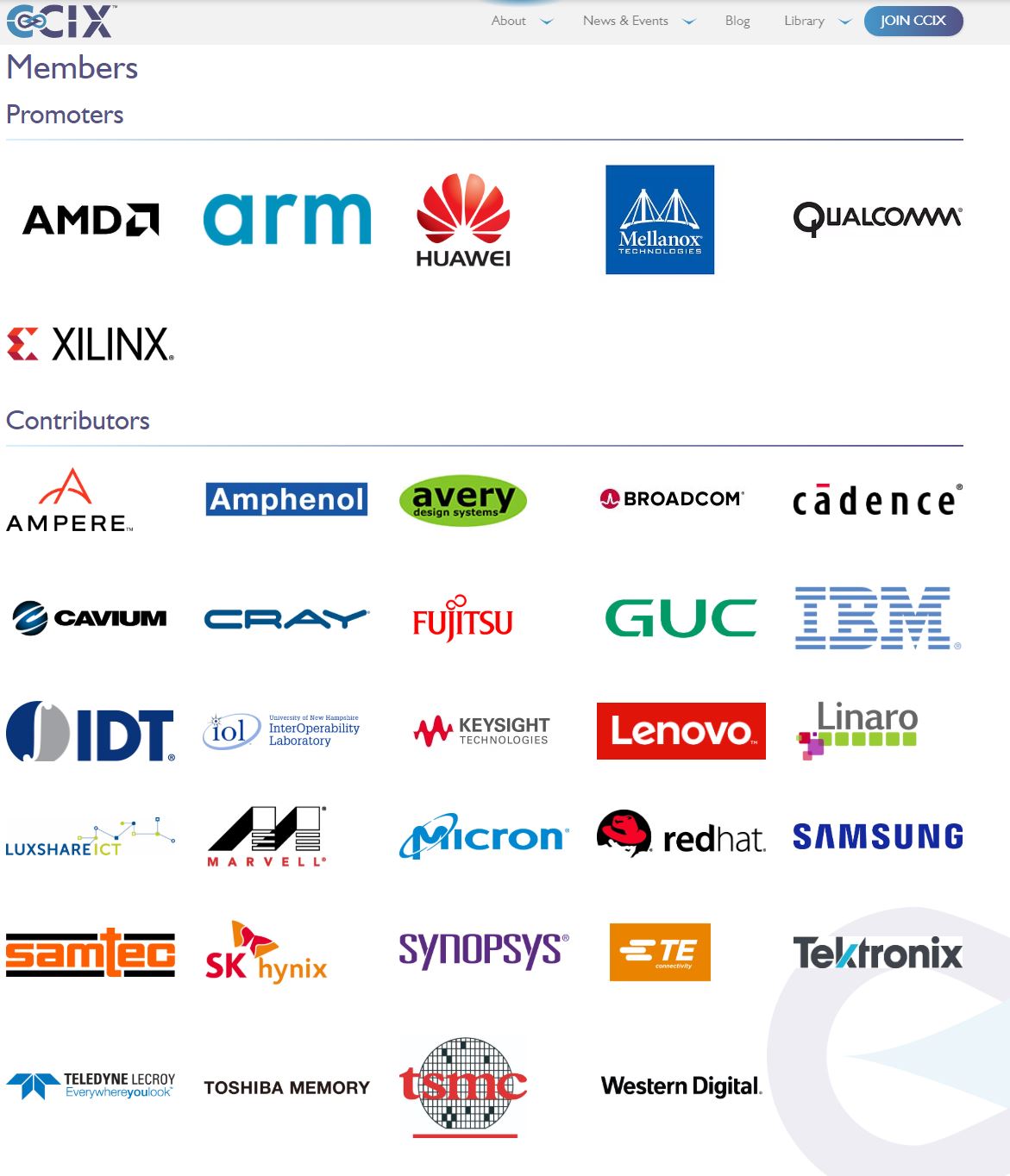
One other interconnect we have been following in CCIX that we are already seeing products with including Huawei CPUs, FPGAs, and other components.
OpenCAPI is well-known for being out there with IBM POWER9 chips supporting the standard and in the wild.
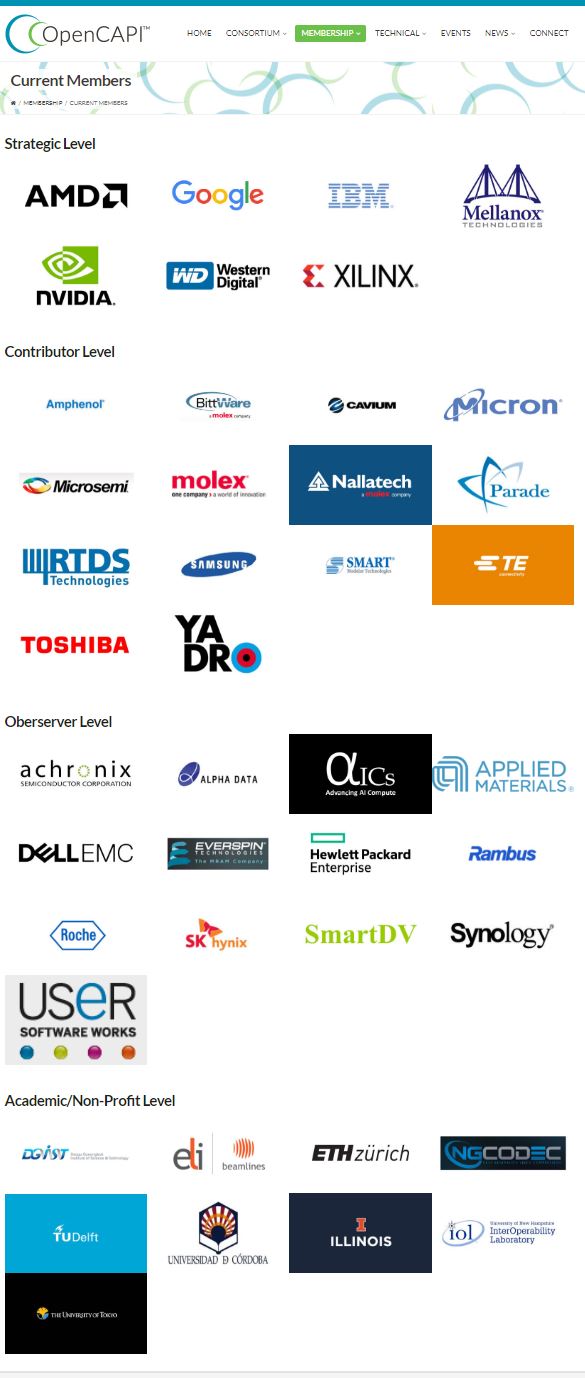
It is reasonable to argue that the CXL is new and that Intel has a lot of market pull. At the same time, the CXL partner list is nothing less than underwhelming. Intel got big names of its customers, but it did not get other accelerators.
Is this Intel Cozying to Gen-Z?
While outwardly, it may seem like Intel has snubbed Gen-Z, going beyond the press release yields three intriguing ecosystem quotes. One from Dell EMC, one from HPE, and a third from the Gen-Z Consortium:
“Dell EMC is delighted to be part of the CXL Consortium and its all-star cast of promoter companies. We are encouraged to see the true openness of CXL, and look forward to more
industry players joining this effort. The synergy between CXL and Gen-Z is clear, and both
will be important components in supporting Dell EMC’s kinetic infrastructure and this data
era.”
Robert Hormuth, Vice President & Fellow, Chief Technology Officer, Server & Infrastructure
Systems, Dell EMC
“At HPE we believe that being able to compose compute resources over open interfaces is
critical if our industry is to keep pace with the demands of a data and AI-driven future. We
applaud Intel for opening up the interface to the processor. CXL will help customers utilize
accelerators more efficiently and dovetails well with the open Gen-Z memory-semantic
interconnect standard to aid in building fully-composable, workload-optimized systems.”
Mark Potter, HPE CTO and Director of Hewlett Packard Labs
Perhaps the most profound is the one from the Kurtis Bowman:
“As a Consortium founded to encourage an open ecosystem for the next-generation memory and compute architectures, Gen-Z welcomes Compute Express Link (CXL) to the industry and we look forward to opportunities for future collaboration between our organizations.”
Kurtis Bowman, President, Gen-Z Consortium
(Source: CXL)
These three quotes seem to indicate that Intel CXL and Gen-Z may not be so far apart.
Final Words
We are entering dangerous territory. Intel is now promoting a fourth major interconnect technology. We think it would have been better if Intel simply adopted Gen-Z outright. That would have likely cemented a winner. Gen-Z is perhaps the logical choice given how much it covers.
2019 is strange in that most major vendors know this is a major architectural shift on the horizon. At the same time, we need a solution solidified before the industry makes the investment to standardize. If CXL is not the path for Intel to adopt Gen-Z then adding Compute Express Link Interconnect creates less clarity in the market instead of more.
What the announcement signals strongly is that the last major holdout to a newer accelerator friendly computing model is heading in this direction.

